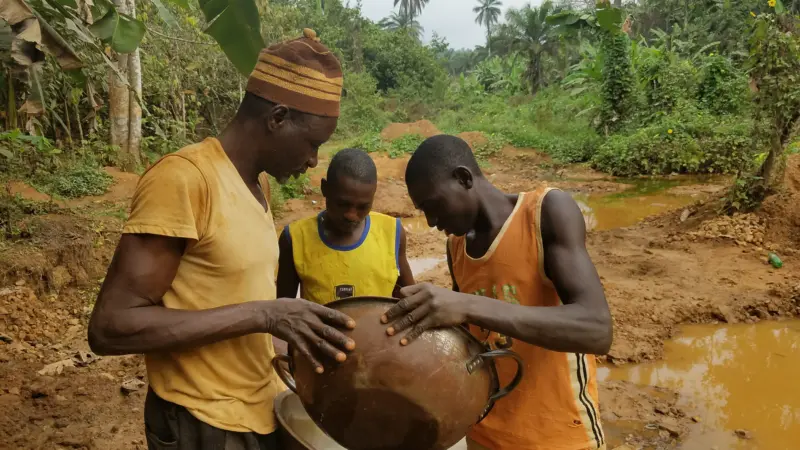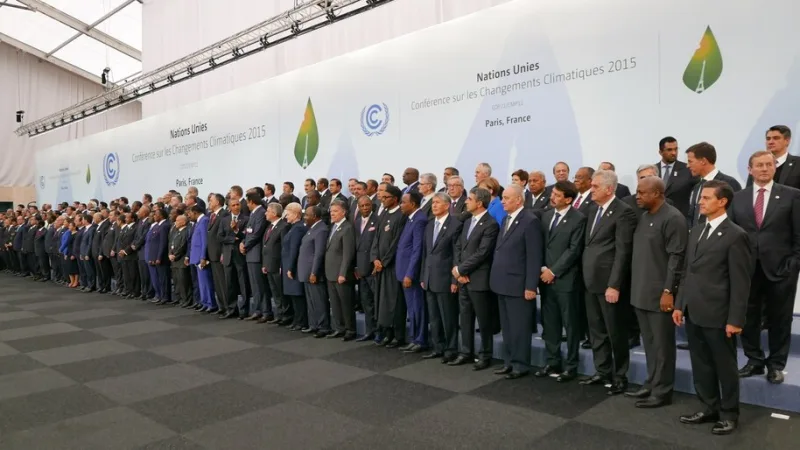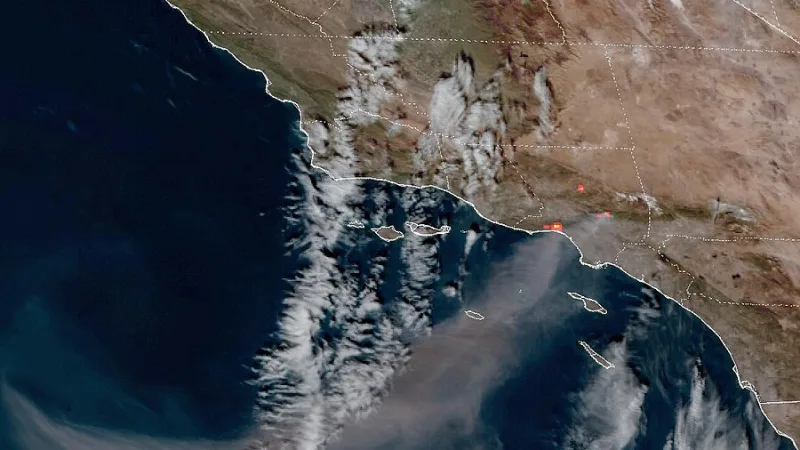Plastic Overload: Identifying the Top 10 Global Waste Producers
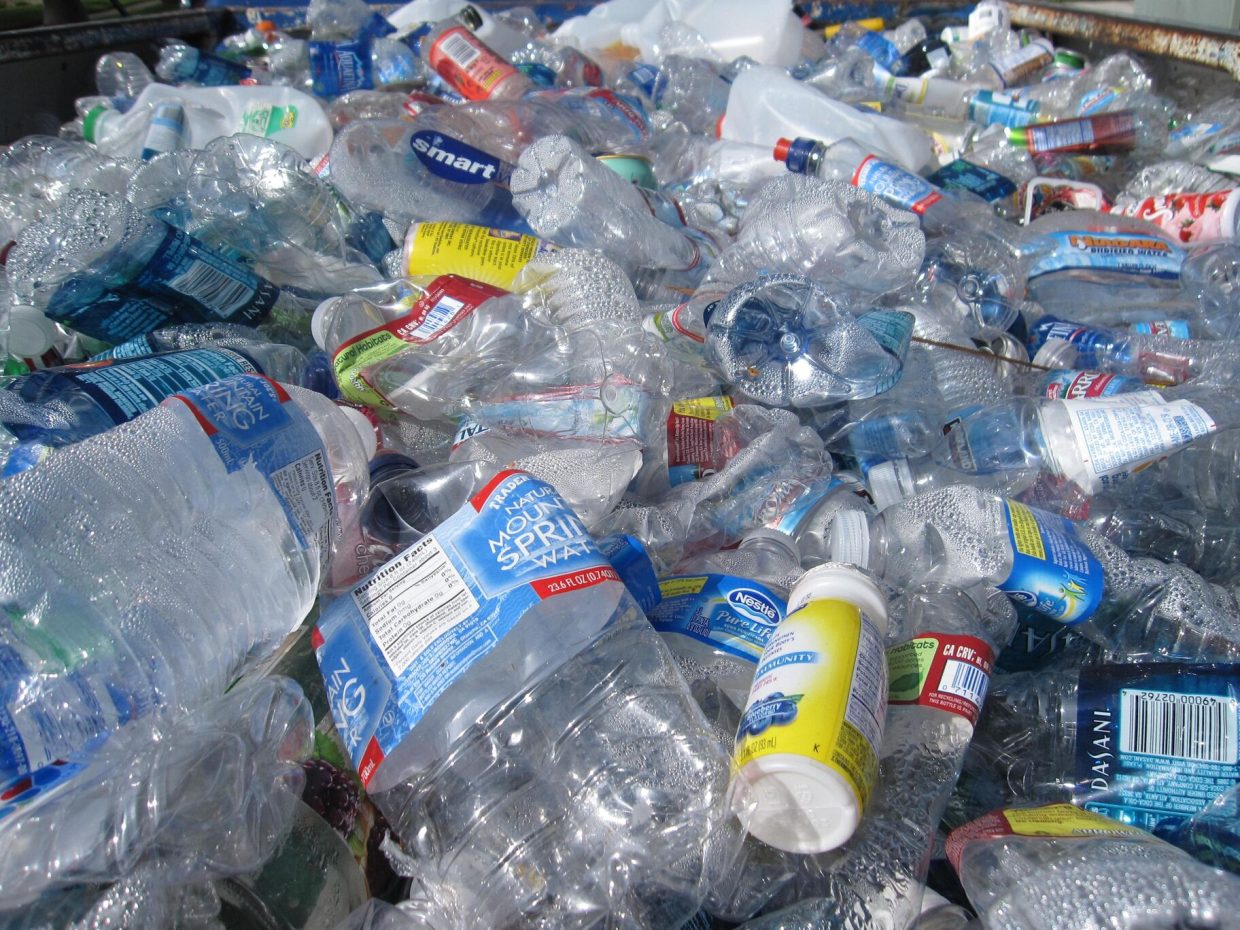
The growing issue of plastic waste pollution is having a severe impact on our environment, leading to annual generation of plastic waste in landfills, oceans, and natural areas. Urgent global action is needed to address this problem. According to UN Environment Programme research (UNEP), the amount of plastic waste generated is expected to lead to fewer fish by 2050 and will continue to have a detrimental effect on the environment.
Despite efforts to minimize plastic consumption, ten countries remain the top generators of plastic waste globally. These countries have a significant responsibility to address the ongoing plastic waste crisis.
United States of America
Plastic use in the United States has seen a significant increase over the past four decades. The country produces over 42 million metric tonnes of plastic waste annually, with approximately 130kg of rubbish generated per American. Unfortunately, the recycling rate for plastic waste is declining, leading to issues with mismanagement and inefficient waste disposal, contributing to up to 2.2 million tonnes of plastic leaking into the environment.
India
India is one of the world’s most significant contributors to plastic waste, generating about 9.46 million tonnes annually. The country is experiencing a challenge with plastic waste management due to the lack of proper waste management infrastructure, leading to littered streets and overflowing landfills. The Indian government has introduced initiatives to tackle the issue, including the Plastic Waste Management Rules, with the goal of reducing single-use plastic and promoting proper waste management.
China
China is the biggest producer of plastic, generating about 60 million tonnes of plastic waste annually. Despite this, the country has taken steps to combat plastic waste pollution, including a ban on single-use plastics and a focus on the circular economy.
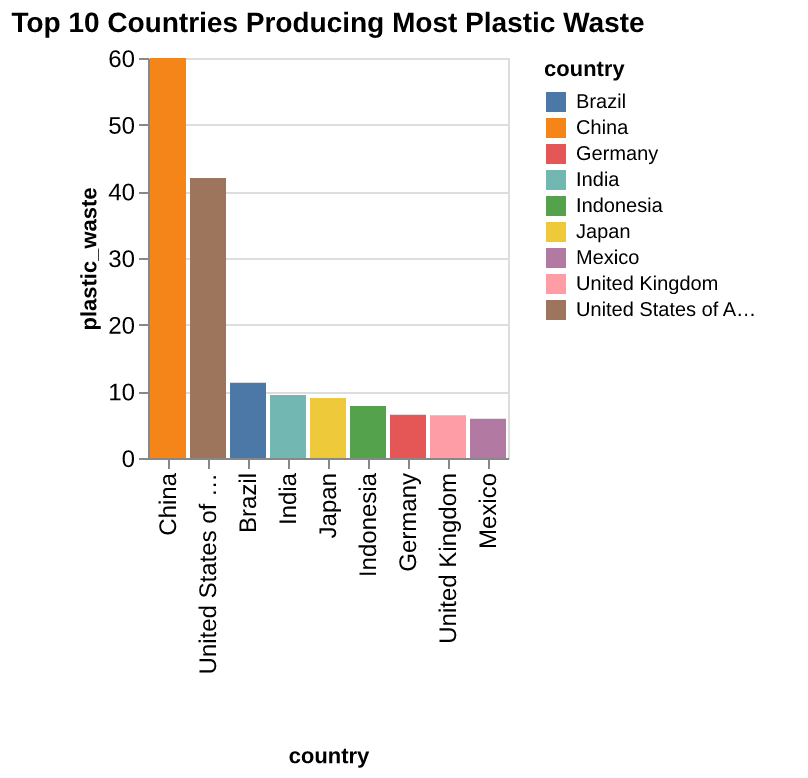
Brazil
As the world’s fourth largest producer of plastic waste, Brazil generates about 11.3 million tons annually, with only 1.28% being recycled. This leads to a significant amount of plastic waste ending up in landfills or in the ocean, posing a severe threat to the environment and marine life.
Japan
Japan produces around 9 million tons of plastic waste annually, with a recycling rate of 19.9%. The country faces issues with disposable plastic waste and its impact on the environment.
Indonesia
Indonesia generates approximately 7.8 million tons of plastic waste annually, with a large portion going uncollected or being improperly managed. The government has launched programs to address this issue.
Russia
Russia’s plastic waste production is increasing, presenting significant challenges due to inadequate waste management systems.
Germany
Germany generates approximately 6.5 million tons of plastic waste annually, with only 38% being recycled.
United Kingdom
The United Kingdom contributes approximately 6.4 million tonnes of plastic waste annually, despite efforts to reduce plastic waste.
Mexico
Mexico generates 5.9 million tons of plastic waste annually, with only 15% being recycled.
While these countries generate significant volumes of plastic waste, the way they deal with the waste varies depending on their economic status. However, the problem of plastic waste pollution demands collaborative and coordinated worldwide countermeasures.’
Environmental Impact of Plastic Waste
The adverse effects of plastic waste on the environment are far-reaching. Plastic waste pollution negatively impacts biodiversity, ecosystems, and human health. To combat this issue, it is important to prioritize the use of reusable materials over disposable ones. It is alarming to note that the global recycling rate for plastic waste is only 9%, indicating a need for increased recycling facility availability and the use of easily recyclable or biodegradable materials.
Addressing the issue of plastic waste pollution requires the collective effort of nations worldwide, and it is crucial to work towards reducing the impact of plastic waste on our environment.’

